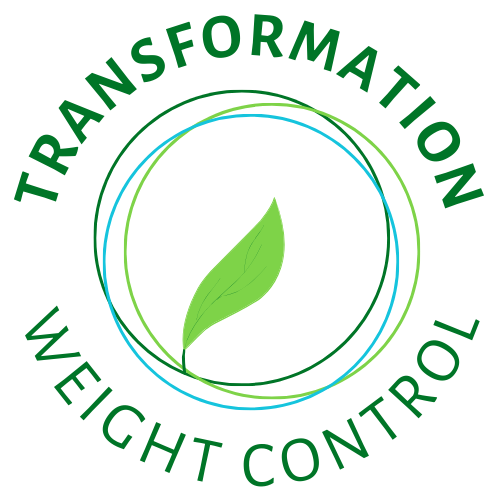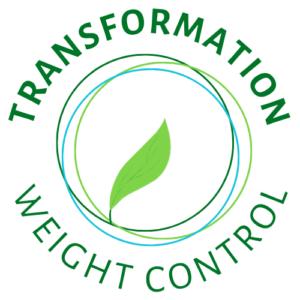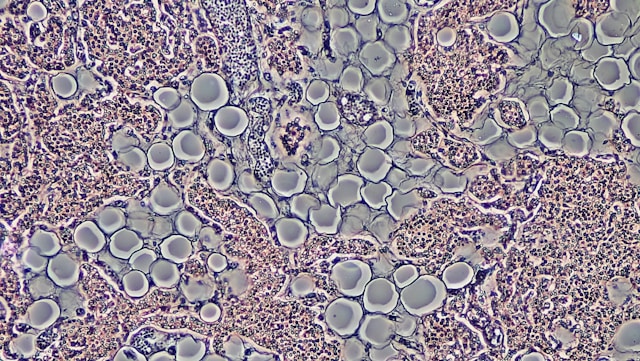Richard Weil, M.Ed., CDE
Founder and Director
Transformation Weight Control
www.transformationweightcontrol.com
[email protected]
If you asked 100 obesity “experts” what their diet philosophy is, you might get 95 different answers. If we were all in agreement, there would be one consensus. But far from it. So, in this blog I describe our nutrition philosophy and some of the other ideas that go into running Transformation Weight Control.
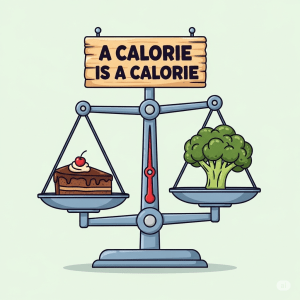
1. A calorie is a calorie. That is the most basic, indisputable, physics of losing weight. You must consume fewer calories than you burn to lose weight. It is a basic law of physics. A calorie is a calorie. Anyone who disagrees doesn’t understand the basic bottom line of the science.
Now, here’s where it gets tricky. Certain foods, such as ultra-processed, may contain the same number of calories as an unprocessed food, but because processed foods are loaded with sugar, additives, and other ingredients you can’t pronounce, they will cause you to eat more than you might otherwise, but even still, when it gets right down to it, whether it’s a processed food or not, a calorie is still a calorie, and you must burn more calories than you consume to lose weight. I wrote a blog about it. You can read that if you want more detail and the proof. Click HERE

2. Marion Nestle, one of the greatest food scientists of all time, an icon of the 20th and 21st centuries → 15 books, more than 300 scientific publications, countless awards, a doctorate (Ph.D.) in molecular biology, NYU Professor of Nutrition Emerita, and in the field more than 50 years. Her website is FoodPolitics.com – worth subscribing to.
Marion is the Ralph Nader of the snack-food and fast-food industry, and she has committed her career, in part, to expose how all they want us to do is eat their food no matter how unhealthy it is. If you are a big snack-food or fast-food manufacturer, you do not want Marion knocking on your front door.
With that said, 1) Marion agrees with my first point about a calorie being a calorie (she said so on our podcast!), and 2) also while a guest on our podcast, I tried to synthesize her 50+ years of work, all those books and publications, and all of her other work into one simple thought… and from one of her books I came up with, “Eat less, eat better, move more.” She said I was spot-on and added only to “get organized” and “get political” (don’t forget her website!). This from truly one of the most world-renowned food scientists and food advocates!
Click HERE for our audio-only podcasts, and HERE for our video podcasts. Our podcast with Marion is episode #8.
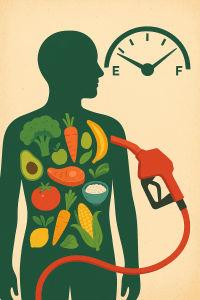
3. From my 44 years of experience in the medical and behavior change field, I believe eating is the most complex behaviors for human beings to change. People eat for dozens of different reasons, psychologically and biologically, and change does not come easy. What might be best for all of us to think is that food is fuel and nutrition for a healthy body.
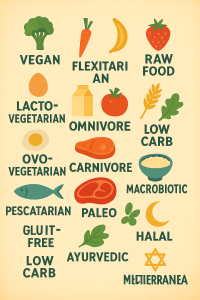
4. Again, eating behavior is not simple. Think how many different ways people eat. Vegan, vegetarian, lacto-vegetarian, ovo-vegetarian, lacto-ovo vegetarian, pescatarian, flexitarian, omnivore, carnivore, keto, paleo, Mediterranean, raw food, gluten-free, low carb, macrobiotic, halal, kosher, Ayurvedic, and many, many more.
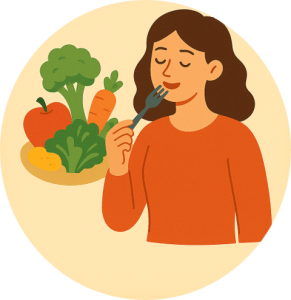
5. GLP-1s, the weight loss medications taking the country by storm, as biologically complicated as they may be, provide weight loss for one simple reason. That is, when you take these medications, you consume fewer calories than you did before taking the medication.
That’s because GLP-1s restore normal, adaptive, appetite regulation. Adaptive means it is healthy for the organism. If everyone on earth had normal, adaptive, appetite regulation, there would be no people with obesity. The opposite of adaptive is maladaptive, unhealthy for the organism.
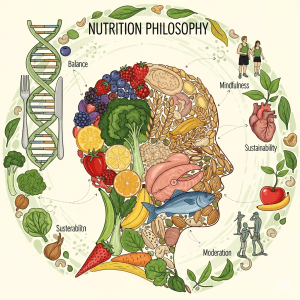
6. At Transformation Weight Control, our nutrition philosophy boils down to some simple premises:
a) We do not want you to feel deprived, restricted or hungry.
b) We want you to consume fewer calories than you burn to lose weight.
c) You can decide how healthy you want to eat, we do not judge.
d) We are not partial to one diet type over another. Of course we are concerned about your health, but when you first start out trying to lose weight, we are more concerned with helping you consume fewer calories than you burn.
e) We never pass judgment.
f) No one should be infantilized when it comes to being taught about nutrition.
g) In the final analysis, common sense ought to prevail in all food endeavors.



7. Exercise is the single best healthy behavior you can do for your body. You can take 100 medications and it still won’t come close to the physical and mental health benefits of regular exercise on a cellular, molecular, or biological level. You don’t lose much weight with exercise, this is well known and researched, but it may be the single best predictor of preventing regain once you do lose weight.
Let me put it to you this way. If you have two groups of people lose the same amount of weight, then have one group exercise and the other group remain sedentary, the exercisers will always prevent regaining much better than the non-exercisers.
To put some numbers to it, research has shown that in 12 months, with three groups: exercise only, diet only, or diet plus exercise, exercise will provide a loss of 2.4% of initial body weight, diet will provide 8.5% loss of initial body weight, and diet plus exercise will provide 10.8% loss of initial body weight.
Both aerobic activity and resistance exercise are important. There are far too many benefits of both types to discuss here. But check out some of my other blogs on these subjects!

8. Eating can be addictive just like alcohol, cocaine, or other substances or behaviors of abuse. The difference between eating and all the other addictions you ‘consume’, is that you have to eat to live, so temptation is always there. With the other consumption addictions, although admittedly difficult to break, you can abstain, and you’re not, for instance, going to be tempted by seeing alcohol or cocaine everywhere you look. Sight is the strongest trigger for a craving.
Think about this. What if everywhere you saw food during an average day, it was a bottle of alcohol instead? How easy would it be to abstain if you had alcohol addiction and saw alcohol everywhere you looked? For heaven’s sake, there’s Godiva chocolate at the Barnes and Noble checkout! What’s it doing there???
And maybe most important, people with addiction, to food or otherwise, require compassion. No one intentionally chose to be addicted to anything, food included. Food addiction, and excess body weight for that matter, ARE NOT YOUR FAULT. For more about food addiction, click HERE.

9. At TWC, we meet you where you are at gently and with empathy. We we do not push, we do not judge, we do not restrict. We know we have a chance of helping you change your eating behavior if we approach you this way, so in the end, you are empowered, and transformed, to consume fewer calories than you burn.

10. And finally, we work on helping you improve your resilience, the ability to bounce back from adversity. We believe resilience is the number one psychological factor in losing weight and preventing regain.
Tied for second as the most important psychological factors in losing weight and preventing regain are lack of self-compassion and lots of all-or-nothing, maladaptive, perfectionistic thinking. That is, it’s never enough. It’s the most insidious thinking style we observe.
When it’s never enough… when losing a pound isn’t good enough, or you believe temporarily falling off your food plan is failure, and you interpret this as YOU are a failure, and you combine that with lack of self-compassion, then you end up beating yourself up and this depletes your resilience.
Everyone is human and fallible, and everyone will make mistakes. Lack of resilience and self-compassion, and always using all-or-nothing thinking, is a sure-fire way of making losing weight and preventing regain much more difficult than it already is. I’ve written blogs on all three of these important factors in your success.
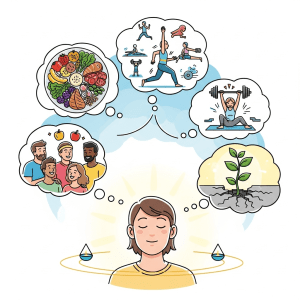
THERE YOU HAVE IT! My thoughts that contribute to our diet philosophy and more!
© 2025 Richard Weil, M.Ed., CDE, All Rights Reserved
